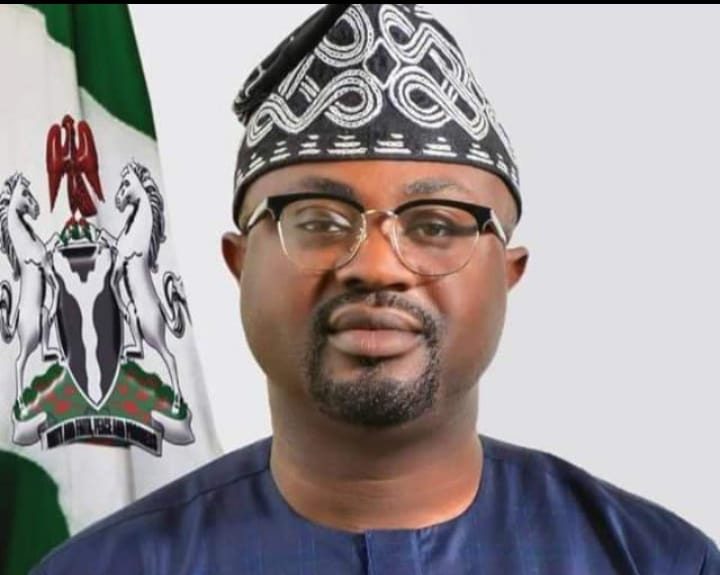Headlines
Nigerian Government Seeks Strategic Investment to Aid Economic Sectors Recovery

The federal government of Nigeria has recently stated its preparedness to partner with potential investment partners in critical sectors of the nation’s economy to expedite recovery.
Some of the areas, the government said includes; domestication of production of key commodities through Backward Integration Programs, driving the growth of Micro, Small and Medium Enterprises (MSMEs), especially through access to finance and markets; and cultivating investments particularly through improving the ease of doing business in the country.
Disclosing this in Lagos at JCI Africa and Middle East Senate Association (AMESA) Conference, themed; “building emerging leaders for Africa and the Middle East,” the Minister of Industry, Trade and Investment, Adeniyi Adebayo, said the country remains the best investment destination in Africa.
Speaking on the topic, “Opportunities and potentials of trade and investments in Nigeria,” Adebayo, noted that the country’s overall policy thrusts are built around three thematic areas of focus.
He said, “With the nation’s BIP, the ministry has intensified efforts to increase local production, increase job opportunities and provide foreign exchange through the domestication of identified priority products namely Automobiles, Palm Oil, Dairy, Sugar, Cassava Starch and Cotton, Textiles and Garments.
“For Automobiles, our focus is on boosting activities around the local assembly of vehicles and auto component manufacturing by providing fiscal incentives, stimulating demand through targeted government patronage and establishment of consumer credit schemes and to improve economies of scale.”
“For Sugar, through the provision of fiscal incentives, import quota allocations, physical infrastructure for irrigation and foreign exchange to operators, we are driving the production of Sugar. For Oil Palm, we are intensifying efforts to facilitate investments across the value chain to increase the local production of Crude Palm Oil (CPO) and its derivatives.
“For Cassava Starch, we are focused on bringing in large-scale investors to increase the production of cassava starch. For Cotton, Textiles and Garments, our strategy here is to improve the cost competitiveness of textile production and leverage Special Economic Zones (SEZs) for garment production for export, ”he added.
Explaining the reason for the birth of the policy drive, the Minister stated the key areas are targeted at meeting
Adebayo further said that the development of Micro Small and Medium Enterprises (MSMEs) and addressing the challenges of poor packaging, labelling and quantity of manufactured goods by MSMEs would mitigate the rejection of made in Nigeria products and ensure sustainability in the global market.
The Minister also listed other areas the government is working to make Nigeria investment friendly, including the National Action Committee on the AfCFTA, enactment of the CAMA Act, Special Agro-processing Zones (SAPZs).
“I would like to reiterate that potential investors should make use of all the investment resources and guides provided by the Nigerian Investment Promotion Council (NIPC), such as the Book of States which consist of the competitive advantages and the key investment opportunities in each of Nigeria’s 36 States and the Federal Capital Territory (FCT) and the “iGuide Nigeria”, an online investment guide to help investors make better-informed decisions about investing in Nigeria.
“I would like to conclude this address by saying that we are open to strategic collaboration with potential investment partners in all the areas I have touched on in this speech,” he added.
On his part, the Governor of Lagos State, Babajide Sanwo-Olu who was represented by the Commissioner for Agriculture, Abisola Olusanya stressed the need for governments to focus investment on the youths as they remain the force for the future of the nation’s economic recovery.
“Going by the theme of this conference “Building Emerging Leaders for Africa and the Middle East”, it has become evident that both the African continent and the Middle East region need now more than ever, to invest in as well as build the capacity of young adults and youths to meet up with the challenges of the 21st century as well as future demands.
“Investing in the youths and their leadership potentials as well as helping the younger generation build their leadership capacity from now will help lay a structure and solid foundation upon which our development in Africa and the Middle East will thrive,” he said.
Headlines
Noble Ladies Champion Women’s Financial Independence at Grand Inauguration in Abuja

Women from diverse backgrounds across Nigeria and beyond gathered at the Art and Culture Auditorium, Abuja, for the inauguration and convention of the Noble Ladies Association. The event, led by the association’s Founder and “visionary and polished Queen Mother,” Mrs. Margaret Chigozie Mkpuma, was a colourful display of feminine elegance, empowerment, and ambition.
The highly anticipated gathering, attended by over 700 members and counting, reflected the association’s mission to help women realise their potential while shifting mindsets away from dependency and over-glamorization of the ‘white collar job.’ According to the group, progress can be better achieved through innovation and creativity. “When a woman is able to earn and blossom on her own she has no reason to look at herself as a second fiddle,” the association stated.
One of the association’s standout initiatives is its women-only investment platform, which currently offers a minimum entry of ₦100,000 with a return of ₦130,000 over 30 days—an interest rate of 30 percent. Some members invest as much as ₦1 million, enjoying the same return rate. Mrs. Mkpuma explained that the scheme focuses on women because “women bear the greater brunt of poverty” and the platform seeks “to offer equity in the absence of economic equality.”
Education is also central to the Noble Ladies’ mission, regardless of age. Their mantra, “start again from where you stopped,” encourages women to return to school or upgrade their skills at any stage in life. The association believes that financial stability is vital in protecting women from cultural practices that dispossess widows of their late husbands’ assets, while also enabling them to raise morally and socially grounded families.
Founded on the vision of enhancing women’s skills and achieving financial stability, the association rests on a value system that discourages pity and promotes purpose. “You have a purpose and you build on that purpose to achieve great potentials and emancipation,” Mrs. Mkpuma said.
A criminologist by training and entrepreneur by practice, she cautions against idleness while waiting for formal employment. “There are billions in the informal and non-formal sectors waiting to be made,” she said, rejecting the “new normal of begging” and urging people to “be more introspective to find their purpose in life and hold on to it.”
Mrs. Mkpuma’s management style keeps members actively engaged, focusing on vocational skills and training to prepare them for competitive markets. She is exploring “innovative integration of uncommon technologies” and is already in talks with international franchises to invest in Nigeria, with Noble Ladies as first beneficiaries.
The association’s core values include mutual respect, innovation, forward-thinking, equal opportunity, and financial emancipation. With plans underway to establish a secretariat in the heart of Abuja, the group aims to expand its impact.
The event drew high-profile guests, including former Inspector General of Police, Mike Okiro, and a host of VIPs, marking a significant milestone in the association’s drive for women’s empowerment.
Headlines
NEPZA, FCT agree to create world-class FTZ environment

The Nigeria Export Processing Zones Authority (NEPZA) has stepped in to resolve the dispute between the Federal Capital Territory Administration and the Abuja Technology Village (ATV), a licensed Free Trade Zone, over the potential revocation of the zone’s land title.
Dr. Olufemi Ogunyemi, the Managing Director of NEPZA, urged ATV operators and investors to withdraw the lawsuit filed against the FCT administration immediately to facilitate a roundtable negotiation.
Dr. Ogunyemi delivered the charge during a courtesy visit to the Minister of the Federal Capital Territory, Barrister Nyesom Wike, on Thursday in Abuja.
You will recall that the ATV operators responded to the revocation notice issued by the FCT administration with a lawsuit.
Dr. Ogunyemi stated that the continued support for the growth of the Free Trade Zones Scheme would benefit the nation’s economy and the FCT’s development, emphasizing that the FCT administration recognized the scheme’s potential to accelerate industrialisation.
Dr. Ogunyemi, also the Chief Executive Officer of NEPZA, expressed his delight at the steps taken by the FCT minister to expand the economic frontier of the FCT through the proposed Abuja City Walk (ACW) project.
Dr. Ogunyemi further explained that the Authority was preparing to assess all the 63 licensed Free Trade Zones across the country with the view to vetting their functionality and contributions to the nation’s Foreign Direct Investment and export drives.
“I have come to discuss with His Excellency, the Minister of the Federal Capital Territory on the importance of supporting the ATV to succeed while also promoting the development of the Abuja City Walk project. We must work together to achieve this for the good of our nation,” he said.
On his part, the FCT Minister reiterated his unflinching determination to work towards President Bola Ahmed Tinubu’s Renewed Hope Agenda by bringing FDI to the FCT.
“We must fulfil Mr. President’s promises regarding industrialization, trade, and investment. In this context, the FCT will collaborate with NEPZA to review the future of ATV, a zone that was sponsored and supported by the FCT administration,” Wike said.
Barrister Wike also said that efforts were underway to fast-track the industrialisation process of the territory with the construction of the Abuja City Walk.
The minister further said the Abuja City Walk project was planned to cover over 200 hectares in the Abuja Technology Village corridor along Airport Road.
According to him, the business ecosystem aimed to create a lively, mixed-use urban center with residential, commercial, retail, hospitality, medical, and institutional facilities.
He added that the ACW would turn out to be a high-definition and world-class project that would give this administration’s Renewed Hope Agenda true meaning in the North-Central Region of the country.
Barrister Wike also indicated his continued pursuit of land and property owners who failed to fulfil their obligations to the FCT in his determination to develop the territory.
Headlines
Benue IDPs block highway, demand return to ancestral homes

Vehicular movement along the Yelwata axis of the Benue–Nasarawa highway was brought to a standstill on Wednesday as Internally Displaced Persons, IDPs, staged a protest, demanding immediate return to their ancestral homes.
The protesters, believed to be victims of persistent attacks by suspected herdsmen, blocked both lanes of the busy highway for several hours, chanting “We want to go back home”.
The protest caused disruption, leaving hundreds of motorists and passengers stranded.
Eyewitnesses said the displaced persons, many of whom have spent years in overcrowded IDP camps, are expressing deep frustration over the government’s delay in restoring security to their communities.
“We have suffered enough. We want to return to our homes and farms,” one of the protesters told reporters at the scene.
Security personnel were reportedly deployed to monitor the situation and prevent any escalation, though tensions remained high as of press time.
Efforts to reach the Benue State Emergency Management Agency, SEMA, and other relevant authorities for comment were unsuccessful.
-

 Headlines4 years ago
Headlines4 years agoFacebook, Instagram Temporarily Allow Posts on Ukraine War Calling for Violence Against Invading Russians or Putin’s Death
-

 Headlines4 years ago
Headlines4 years agoNigeria, Other West African Countries Facing Worst Food Crisis in 10 Years, Aid Groups Say
-

 Foreign4 years ago
Foreign4 years agoNew York Consulate installs machines for 10-year passport
-

 News1 year ago
News1 year agoZero Trust Architecture in a Remote World: Securing the New Normal
-

 Entertainment3 years ago
Entertainment3 years agoPhyna emerges winner of Big Brother Naija Season 7
-

 Headlines2 years ago
Headlines2 years agoNigeria Customs modernisation project to check extortion of traders
-

 Entertainment2 years ago
Entertainment2 years agoMovie download platform, Netnaija, announces closure
-

 Economy2 years ago
Economy2 years agoWe generated N30.2 bn revenue in three months – Kano NCS Comptroller













